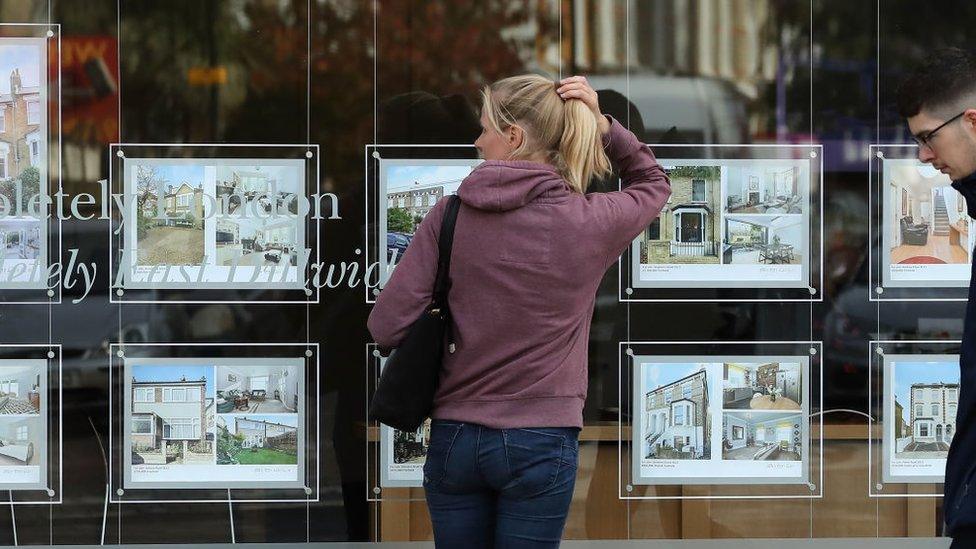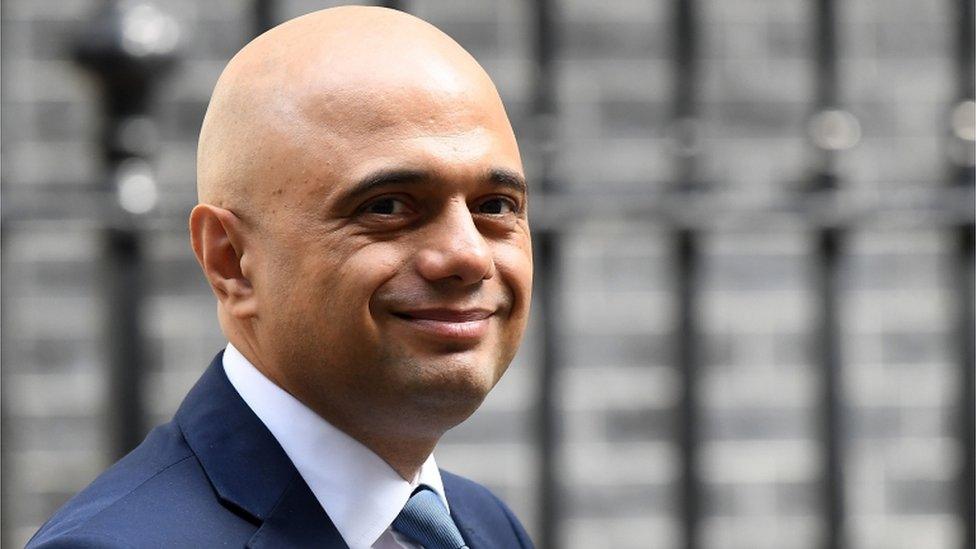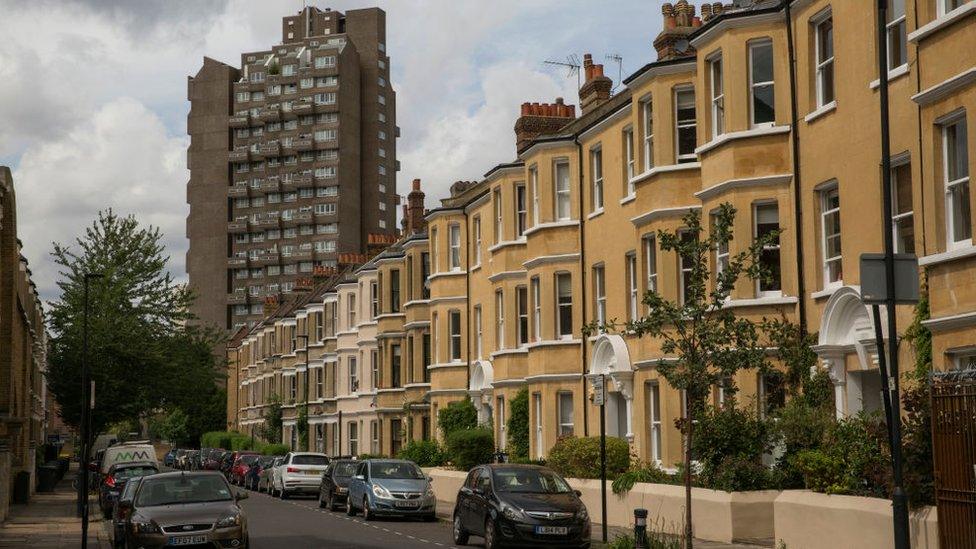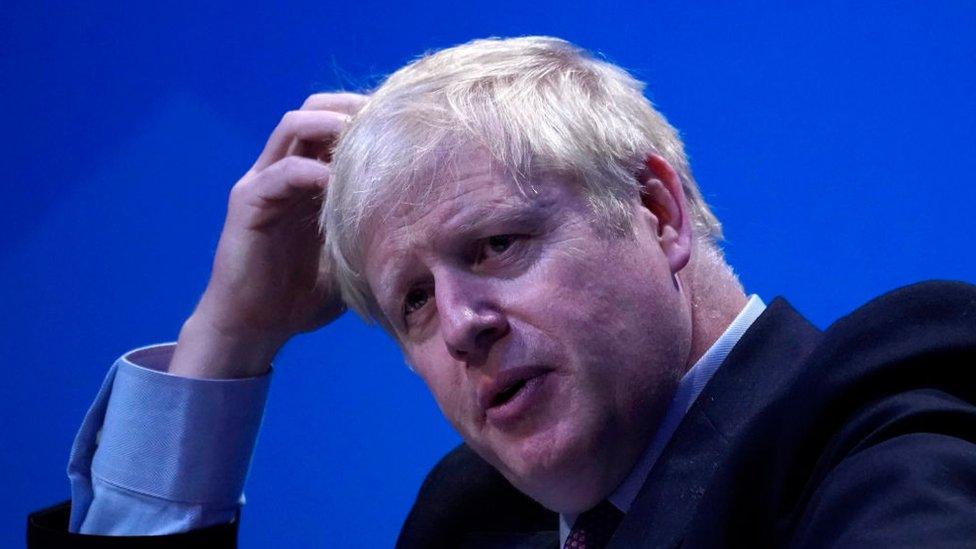I won't shift stamp duty to sellers, says chancellor
- Published
- comments

Chancellor Sajid Javid has said he has no plans to make house sellers rather than buyers pay stamp duty tax.
"I wouldn't support that," the chancellor said in a tweet on Sunday.
His comments came after the Times reported on Saturday, external that Mr Javid was considering the idea, to save first-time buyers from paying the tax.
"I know from the Ministry of Housing, Communities and Local Government that we need bold measures on housing - but this isn't one of them," Mr Javid said.
Allow X content?
This article contains content provided by X. We ask for your permission before anything is loaded, as they may be using cookies and other technologies. You may want to read X’s cookie policy, external and privacy policy, external before accepting. To view this content choose ‘accept and continue’.

Stamp duty - a purchase tax paid in England and Northern Ireland on properties worth more than £125,000 - was abolished in 2017 for first-time buyers spending up to £300,000 on a house.
Forcing home sellers rather than buyers to pay the stamp duty tax would have made house purchases cheaper for those buying their first home or people trying to upgrade to larger homes, but could have made owners of larger homes reluctant to downsize.
The latest housing figures suggest that both house prices and sales are losing momentum amid Brexit uncertainty.
Key aspects of the housing market were "pretty much flatlining", the Royal Institution of Chartered Surveyors (Rics) said earlier this month.
In the interview with the Times, Mr Javid refused to give details of his plans to reform the tax system, instead saying "wait and see for the Budget" which is due to take place in the autumn.
According to the newspaper Mr Javid said: "I'm a low-tax guy. I want to see simpler taxes."
The report added: "he said that he was looking at various options when asked about stamp duty reforms including reversing liability from those buying property to those selling".
Mr Javid also said he had not yet decided whether to hold the Budget before 31 October, the date the UK is expected to leave the EU.

What is Stamp Duty?
It's a tax that people who buy property or land must pay. In England and Northern Ireland buyers pay Stamp Duty Land Tax, in Scotland it is Land and Buildings Transaction Tax while in Wales buyers pay Land Transaction Tax.
In England and Northern Ireland the tax falls due on homes sold for £125,000 or more. However, first-time buyers pay no tax up to £300,000 and 5% on any portion between £300,000 and £500,000.
For people who have bought a home before, the rates are 2% on £125,001-£250,000, 5% on £250,001-£925,000, 10% on £925,001-£1.5m, and 12% on any value above £1.5m.
So if you are not a first-time buyer, and you buy a house for £275,000, the Stamp Duty you owe is calculated as follows:
0% on the first £125,000 = £0
2% on the next £125,000 = £2,500
5% on the final £25,000 = £1,250
Total Stamp Duty = £3,750
In Scotland, the rates on Land and Buildings Transaction Tax are 2% on £145,001-£250,000, 5% on £250,001-£325,000, 10% on £325,001-£750,000, and 12% on any value above £750,000.
In Wales, the rates on Land Transaction Tax are 3.5% on £180,001-£250,000, 5% on £250,001-£400,000, 7.5% on £400,001-£750,000, 10% on £750,001-£1.5m, and 12% on any value above £1.5m.

Why shift stamp duty from buyers to sellers?
One organisation which had long been proposing the switch is the Association of Accounting Technicians (AAT).
"Switching liability would be considerably fairer, simpler, more effective and cheaper than the current stamp duty regime," said Phil Hall, head of public affairs and public policy at the AAT.
The association claims such a move "would remove every single first-time buyer across the country from stamp duty liability while crucially also helping those already on the property ladder to move up".
It reckons the move will protect the £9.3bn currently raised "because although those paying will change, the amount will not".
But critics predict that sellers would simply add the stamp duty to the house price, meaning the buyer would effectively end up paying the tax anyway.
- Published17 August 2019

- Published24 July 2019

- Published25 June 2019
